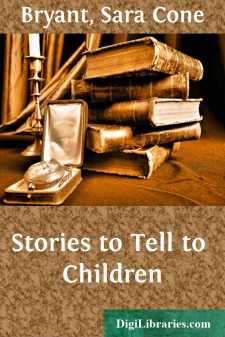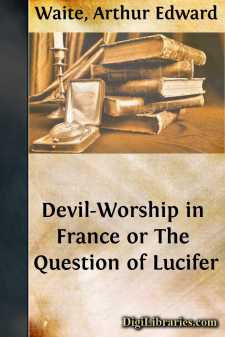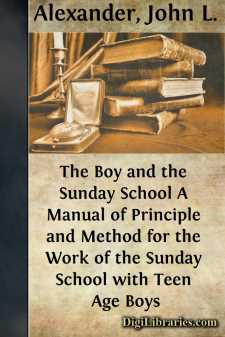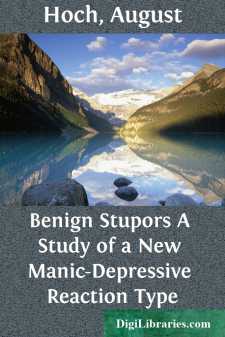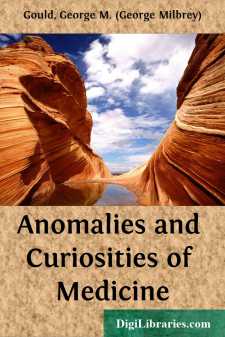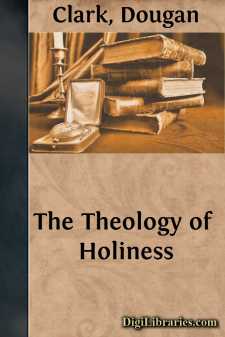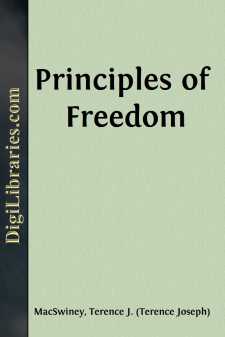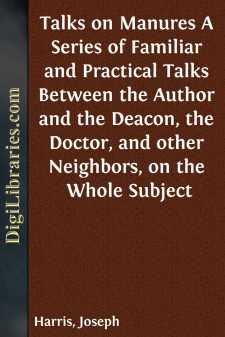Non-Classifiable
- Non-Classifiable 1768
Non-Classifiable Books
Sort by:
by:
Sara Cone Bryant
SOME SUGGESTIONS FOR THE STORY-TELLER Concerning the fundamental points of method in telling a story, I have little to add to the principles which I have already stated as necessary, in my opinion, in the book of which this is, in a way, the continuation. But in the two years which have passed since that book was written, I have had the happiness of working on stories and the telling of them, among...
more...
SATANISM IN THE NINETEENTH CENTURY If a short time ago that ultimate and universal source of reference, the person of average intelligence, had been asked concerning Modern Diabolism, or the Question of Lucifer,—What it is? Who are its disciples? Where is it practised? And why?—he would have replied, possibly with some asperity:—“The question of Lucifer! There is no question of Lucifer. Modern...
more...
INTRODUCTION The Sunday school chapter of Church history is now being written. It comes late in the volume, but those who are writing it and those who are reading it realize—as never before—that the Sunday school is rapidly coming to its rightful place. In the Sunday school, as elsewhere, it is the little child who has led the way to improvement. The commanding appeal of the little ones opened the...
more...
PREFACE. For readers unacquainted with the progress that has been made in recent years by earnest students of occultism attached to the Theosophical Society, the significance of the statement embodied in the following pages would be misapprehended without some preliminary explanation. Historical research has depended for western civilisation hitherto, on written records of one kind or another. When...
more...
by:
August Hoch
A word should be said as to the origin and history of this book. When the late Dr. Hoch became Director of the Psychiatric Institute of the New York State Hospitals in 1910, he found there an interest in just the kind of psychiatric research which it was his ambition to further. His predecessor, Adolf Meyer, had developed the conception that the psychoses should be looked on as psychobiological...
more...
Since the time when man's mind first busied itself with subjects beyond his own self-preservation and the satisfaction of his bodily appetites, the anomalous and curious have been of exceptional and persistent fascination to him; and especially is this true of the construction and functions of the human body. Possibly, indeed, it was the anomalous that was largely instrumental in arousing in the...
more...
Chapter I The Pony Express was the first rapid transit and the first fast mail line across the continent from the Missouri River to the Pacific Coast. It was a system by means of which messages were carried swiftly on horseback across the plains and deserts, and over the mountains of the far West. It brought the Atlantic coast and the Pacific slope ten days nearer to each other. It had a brief...
more...
by:
Dougan Clark
Entire Sanctification as Taught by John. John, before Pentecost, was emphatically a Son of Thunder. He could forbid a man to cast out devils in the name of Jesus, because the man was not of his own particular fold. He was ready to imitate Elijah by calling down fire from heaven to destroy the Samaritans who would not extend the rites of hospitality to his Master. He was eager to have the highest...
more...
CHAPTER I THE BASIS OF FREEDOM I Why should we fight for freedom? Is it not strange, that it has become necessary to ask and answer this question? We have fought our fight for centuries, and contending parties still continue the struggle, but the real significance of the struggle and its true motive force are hardly at all understood, and there is a curious but logical result. Men technically on the...
more...
by:
Joseph Harris
INTRODUCTION TO NEW AND ENLARGED EDITION. Sir John Bennet Lawes kindly consented to write a Chapter for the new edition of this work. The Deacon, the Doctor, the Squire, Charlie and myself all felt flattered and somewhat bashful at finding ourselves in such distinguished company. I need not say that this new Chapter from the pen of the most eminent English agricultural investigator is worthy of a very...
more...


